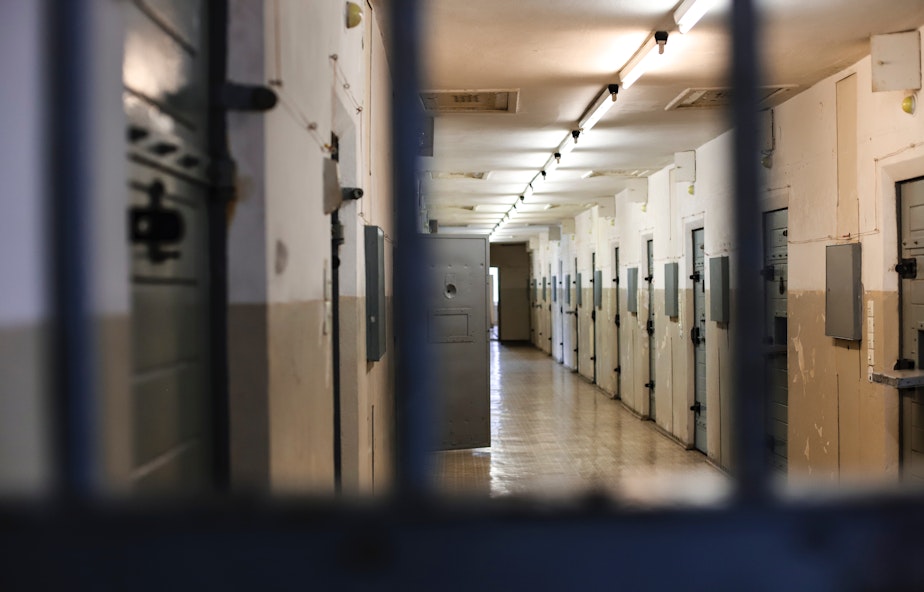WA lawmakers consider minimum wage requirement for incarcerated workers

There are 2,200 incarcerated people across Washington who have jobs.
They’re employed in prison facilities. They might be welders, food service workers, carpenters, or janitors.
You may have bought something created by an incarcerated person, like your license plate.
Altogether, Washington’s Department of Corrections generated $68.8 million in revenue last year.
But only a small portion of that money makes it into the incarcerated workers’ wages. At most, inmates can make $2.70 an hour.
A new proposal by State Rep. Tarra Simmons (D-Bremerton) would raise that minimum wage to match Washington’s at $15.74 an hour.
Simmons also happens to be the first ever formerly incarcerated person to be elected to the State Legislature.
Simmons told KUOW host Kim Malcolm she remembers working a number of jobs in prison, and never making more than 42 cents an hour.
Sponsored
"If you refuse to work, you are threatened with a major infraction, which means you can go to solitary confinement, lose visitation with your children, or even lose good time," she said.
That’s hard when there are also necessities you have to pay for while in prison, like tampons, toothpaste, and cotton swabs.
"You also have to pay for medical care," Simmons said. "You have to pay a copay for that. And we even charge people for cost of incarceration."
Simmons' proposal is built on the argument that current wages are an exploitative but legal loophole which needs closing.
"The 13th Amendment of the United States Constitution abolished slavery and involuntary servitude except for punishment for a crime. So this is often referred to as the 'slavery loophole.'"
Sponsored
If she had been paid Washington's minimum wage for her work while incarcerated, Simmons said her and her kids' lives would have been a lot easier afterwards.
"Had I been able to work while I was incarcerated and able to pay off that debt, I would have had money for housing when I was released," she said. "Instead, I went homeless while I was studying for the law school admission test."
As for how it would work, Simmons said the bill would increase pay for inmates, but not all of that funding would be immediately available to the workers.
"It increases the amount of money that goes to victim restitution and child support," Simmons said. "And also mandates that 50% goes into a savings account that will be available upon reentry."
Simmons said she is hopeful House Bill 1024, otherwise known as the “Real Labor, Real Wages Act,” will see support from across the aisle.
Sponsored
The bill faces its first test this Thursday, during an executive session in the House Committee on Community Safety, Justice, and Reentry.
But not everyone is so sure.
"That's an idea that I think is attractive to people who are perhaps newly aware of the many moral hazards of incarcerating people for long periods of time," said Paul Queary, the editor and publisher of The Washington Observer and the Washington State Wire.
But financially, it will be very hard for the state to separate itself from cheap inmate labor.
"They will lose a lot of the competitive advantage that the correctional industries has versus the private sector," Queary noted. "Obviously, with labor that inexpensive, they can afford to sell their products at a lower rate and be competitive with businesses on the outside."
Sponsored
A lot of the work that goes into running a prison is also done by inmates, such as laundry services.
"It's therefore much cheaper than it would be if they were paying a higher wage," Queary said.
He also noted there has been a seat change in recent years, as more lawmakers become aware of the damages of incarceration.
"But whether there's been enough change for this bill to pass I think remains to be seen."
You can hear Simmons’ full interview with Kim Malcolm on Tuesday afternoon on All Things Considered.





